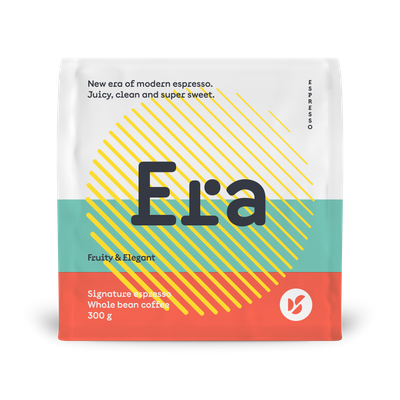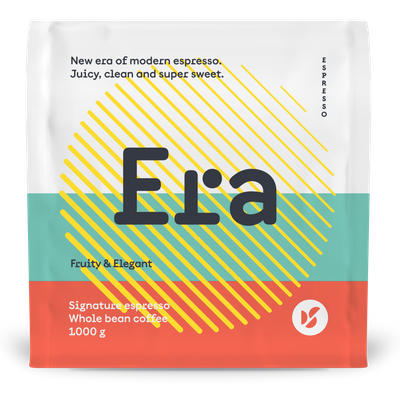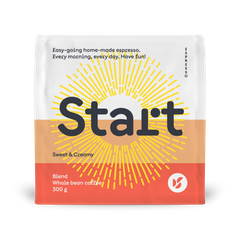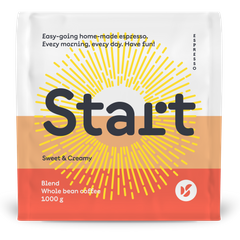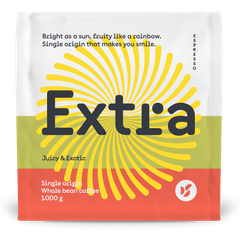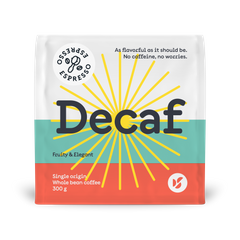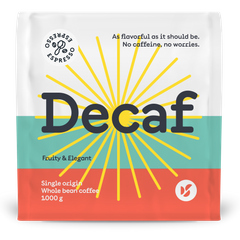
| Farm | Bolivia Taypiplaya, Brazil Ivan and Rosé |
|---|---|
| Varietal | Catuaí and Caturra |
| Processing | Fully washed and natural |
| Crop | September 2024 |
| Partnership | since 2011 |
| Flavour | Fruity & Elegant |

How do we create our Era blend?
When we create Era espresso blends, we always look for single origin coffees with distinguishable character, which would together make a true taste experience.
Our current Era consists of two coffees:
Bolivia Taypiplaya - washed - caturra, catuaí - 50 %
Brazil Ivan and Rosé - natural - catuaí - 50 %
Espresso Coffee Family
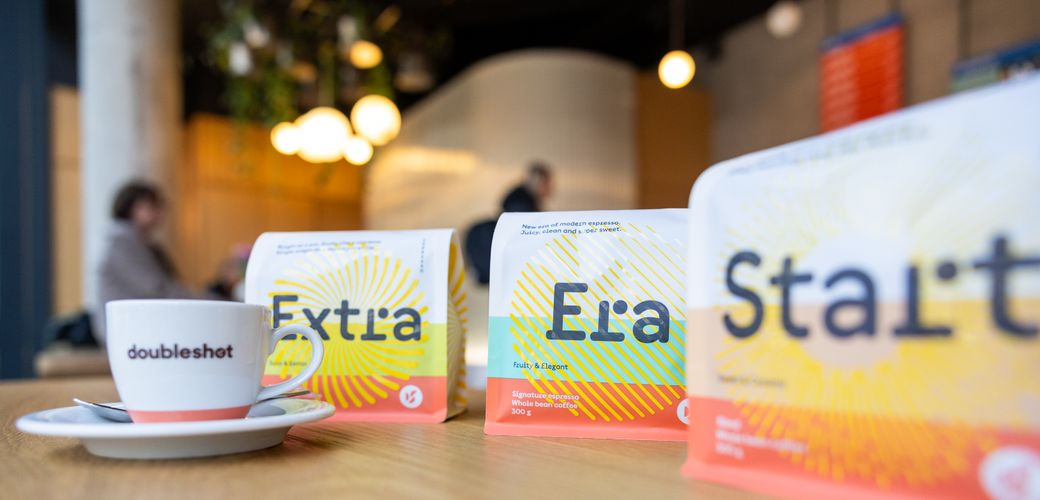

Bolivia Taypiplaya
Taypiplaya is an area located in the mountains near the coffee center of Bolivia, the town of Caranavi. Through their "Sol de la Mañana" program the Rodriguez family (owners of Agricafe) has created a community of indigenous Quechua coffee producers, who grow traditional varieties of caturra, catuaí, java and bourbon on their farms (2-5 hectares) and bring freshly picked cherries to the Buena Vista processing plant in Caranavi every evening during the harvest.
The "Sol de la Mañana" program focuses on improving the production model for small-scale farmers in Bolivia with the aim of creating a more profitable and sustainable future for the growing communities. The Rodriguez family employs a team of agronomists who regularly visit producers and help with all aspects of coffee cultivation. This comprehensive educational program aims to increase the quality and quantity of coffee grown while offering the purchase of coffee cherries at fair prices.
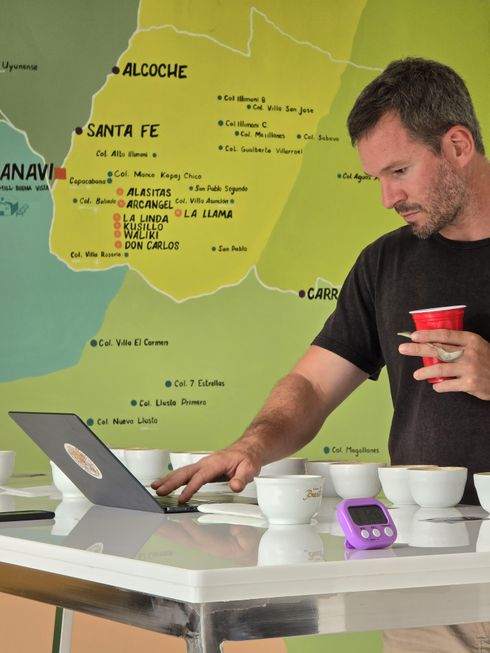
Selecting coffees in Bolivia
We have been buying regularly from Daniela, Pedro and Pedro Pablo Rodriguez since 2018. We always select the coffees after the harvest in September at their Bella Vista processing plant in Caranavi. For the ERA espresso blend, we mainly use washed blends of caturra and catuaí from producers in the Taypiplaya colony and from the farm of Mr. Julio Palli from Caranavi. These are precisely processed and dried coffees, which then undergo final sorting (optical and manual under UV light) and packaging in the highest coffee plant in the world, La Luna, in La Paz. From there, the container travels directly to us in Prague.
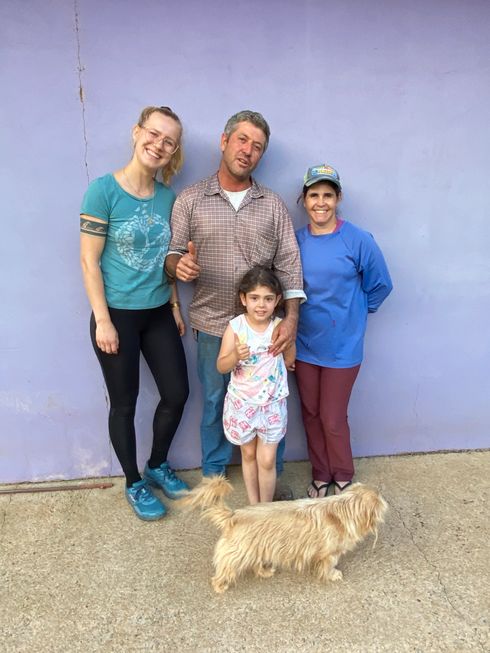
Brazil Ivan and Rosé
We first met Ivan dos Santos and his wife Rosé in person 14 years ago thanks to Marcos and Felipe Croce from Fazenda Ambiental Fortaleza. We have been buying coffee from the Sitio Canaa and Novo Canaa farms, where Ivan works together with his brother Joao, on a regular basis since 2011. Together with their sister, Mrs. Gertrudes dos Santos, Ivan and Joao are among our largest suppliers of green coffee.
The Sitio Seriema farm is named after a local bird from the Seriema family and is located at an altitude of 1200-1350 m above sea level near the town of Caconde. All drying takes place in mechanical dryers or on concrete patios at brother Joao Hamilton’s farm. About 5 years ago, Ivan built his own coffee warehouse, which he is justifiably proud of.
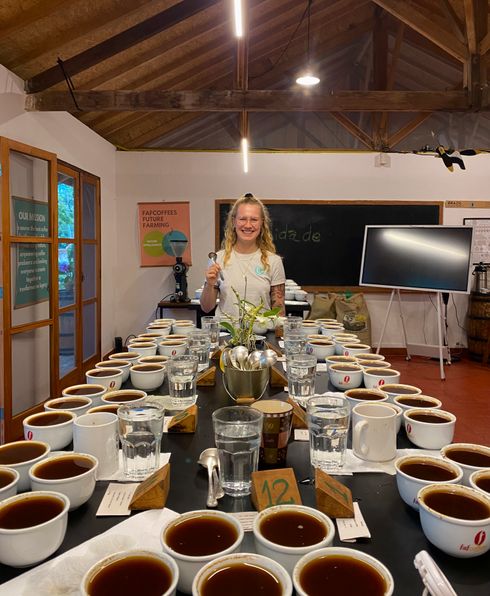
Coffee crisis in Brazil
The coffee selection always takes place at the Fazenda Ambiental Fortaleza farm owned by the Croce family, whose company FAF Coffee operates as coffee exporters for thousands of small producers in the regions of Minas Gerais, Sao Paulo and Espirito Santo. Last year's visit to the farm and cupping of the just-finished harvest were in the spirit of the very difficult situation that the Brazilian coffee trade found itself in. Unprecedented droughts throughout the year (the hottest year in the history of measurement) resulted in a very poor harvest, in terms of quality and quantity. Record high prices on the commodity coffee market meant the departure of traditional partners, who (logically) lost the motivation to produce specialty coffee and preferred to sell their harvest to commodity coops.
You can read more about the current situation in Brazil in our blog post.
How does it taste?
The Bolivian washed coffee brings to the cup elegant acidity, soft fruity tones, as well as floral aromatics. The natural processed coffee from Brazil creates a sirupy mouthfeel and a hazelnut aftertaste. Together, they make a balanced and sweet espresso that is great on its own or with milk.

Have you got your favourite cup yet?

Recommended Recipe
Dose: 18-19 g
Temperature: 94 °C
Coffee Yield: 45-50 g
Extraction time: 28-35 sec
(We always recommend using precision baskets VST, LM Advanced or IMS.)


